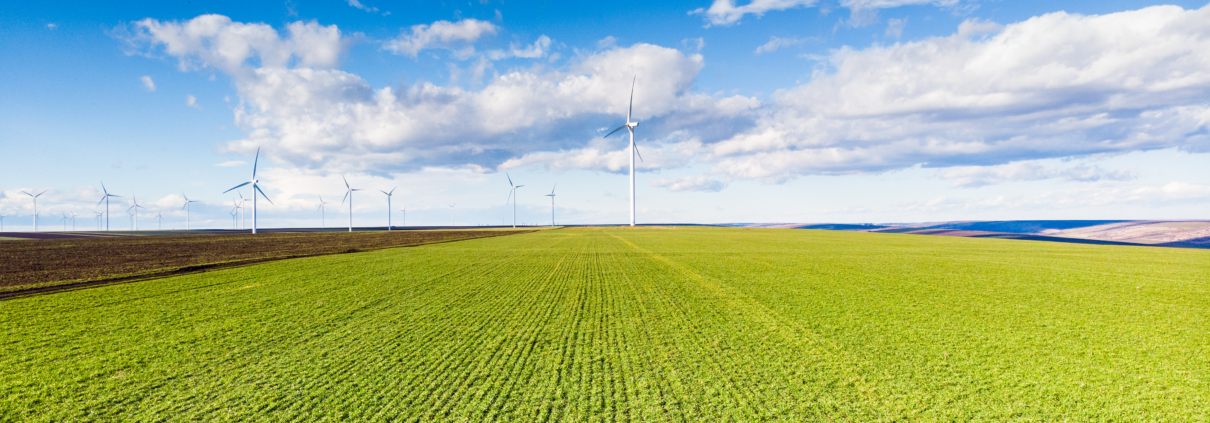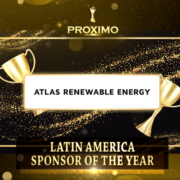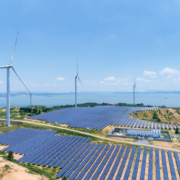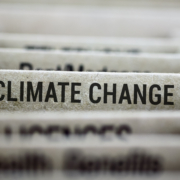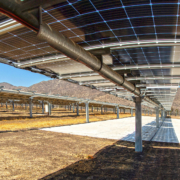How renewables can help feed the world without overwhelming the planet
The global population is expected to increase by nearly a third, or by 2 billion people, by 2050. With the food production chain among the greatest contributors to global warming, feeding the world without overwhelming the planet has become an urgent imperative. Today, as an increasing number of companies and countries take up the climate change challenge, and consumers begin to demand sustainable products, the food industry is changing – fast.
Many brands are putting in the work on health and wellbeing, creating healthier products with the sustainable sourcing of raw materials. Meanwhile, a focus on human and labor rights in the supply chain has seen companies join initiatives such as Fairtrade to ensure that those working to produce the food we eat do so in safe conditions and are paid a fair wage. Cutting water usage and reducing waste impact has also become a major priority, with many companies bringing products on the market with recyclable packaging.
But without tackling the big energy usage and emissions elephant in the room, none of these efforts will have a meaningful impact on the future of our planet.
From the production of crops, forestry, meat and fish products to food storage and processing, transport and distribution and food preparation, the agri-food value chain today consumes 30% of the world’s available energy and accounts for as much as a fifth of all global greenhouse gas (GHG) emissions. As the population grows and food requirements go up, a solution must be found that reduces the use of fossil fuels while still reaching food productivity targets.
Fortunately, leading companies in the sector, from retailers to agro-food processors, are taking steps to make this happen, by making the shift towards more sustainable, renewable energy sources.
From retailer Walmart’s commitment to source 100% of its electricity from renewable sources by 2035, to the work of global confectionery producer Mars, which has already converted several of its operations to 100% renewable energy, and fruit and vegetable producer Dole’s pledge to achieve zero fossil-based plastic packaging by 2025 and net zero carbon emissions in all of its operations by 2030, companies across the food value chain are taking their responsibilities seriously.
But it is not just the large household names that can make a difference. In recent years, consumers around the world are increasingly aware of the environmental impact of the brands they buy from, and this includes food and beverage companies. According to the Harvard Business Review “products that had a sustainability claim on-pack accounted for 16.6% of the market in 2018, up from 14.3% in 2013, and delivered nearly US$114bn in sales. Most importantly, products marketed as sustainable grew 5.6 times faster than those that were not.” The study adds that consumers are now “actively buying more environmentally friendly products,” and some are even willing to pay a premium for food and beverage products that follow sustainable business practices. What’s more, the environmental practices of the food industry are under constant watch from governments and NGOs, due to their potential impact.
Tackling their carbon footprint, alongside other SDG-linked objectives, is vital for companies of all sizes that want to keep market share and contribute to a sustainable future.
The renewable energy opportunity
In recent years, solar power purchase agreements (PPA) in the commercial and industrial sectors have made an enormous contribution to the growth of renewable energy. Last year, corporations purchased a record 23.7GW of clean power through long-term agreements, despite the devastation caused by the Covid-19 pandemic and a global recession.
For companies in the food sector, solar PPAs are especially useful, since the energy demand from process heating and cooling, pumping and facility ventilation, and lighting is higher during daylight hours – even in facilities that operate 24/7.
While other renewable energy sources have also been used by the sector – such as the conversion of biomass into energy – they are not free of emissions. Processing organic waste into biofuel is not only an expensive and complex process, but it also produces greenhouse gases from combustion, so while biomass power might be a renewable source, it doesn’t tackle the emissions problem.
By signing a corporate solar PPA, a food company can reduce energy expenses and greenhouse gas emissions simultaneously, without affecting monthly cash flow.
Of course, companies within the sector can also purchase their own solar power systems, but this requires capital that could be used to invest into expanding production capacity, innovating new products, or entering new markets. With a solar PPA, food companies can use the capital saved to improve sustainability elsewhere within their business, from boosting energy efficiency to upgrading equipment.
With a corporate PPA, companies can also access another type of savings that are not evident upfront. When food production companies obtain their power from the grid, they are subject to tariff increases from energy companies – and with wholesale energy prices reaching multi-year highs in several markets, many are feeling the pinch. A PPA clearly establishes the price of the electricity for the duration of the contract, locking in certainty at a time when companies are facing extreme market volatility.
Solar PPAs not only offer a reduction of energy expenses; they provide an opportunity for food companies to become more environmentally responsible as they step up to the challenge of feeding an extra 2 billion people in the coming years.
How Atlas can help
Without a shift to renewable energy, there is no sustainable way for businesses within the food production sector to keep up with increased demand. Feeding the world without destroying the planet in the process is one of the most important issues of our time, and companies in the sector must act now – both in making their internal operations more sustainable as well as demanding that the suppliers they buy from do so too
Atlas Renewable Energy was conceived with sustainability at its core. It develops, builds, finances, and operates clean energy projects across the Americas that enable companies to power their operations sustainably.
With robust experience handling long-term renewable power purchase agreements (PPAs) to renewable energy certificates (RECs), Atlas helps large energy consumers across industries make the shift to green energy and manage their transition to net-zero emissions.
To find out more about Atlas Renewable Energy’s approach and how it can help your company meet its sustainability goals, contact us at contacto@atlasren.com.
In partnership with Castleberry Media, we are committed to taking care of our planet, therefore, this content is responsible with the environment.*
